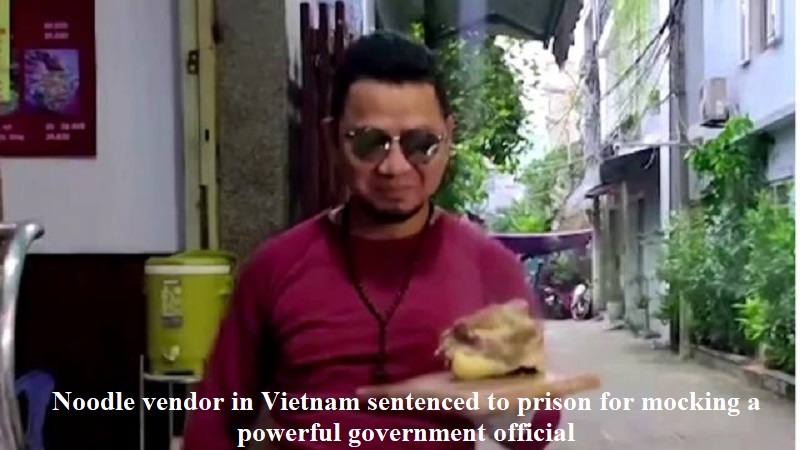
On Thursday, a noodle vendor in Vietnam, known for imitating the famous chef “Salt Bae,” was sentenced to five and a half years in prison for allegedly mocking a government official. The police stated that the court found him guilty of anti-state propaganda, adding to the government’s broader effort to silence dissenting voices against the ruling Vietnamese Communist Party, according to rights groups.
In November 2021, a video of 39-year-old Bui Tuan Lam went viral after he imitated the Turkish chef known as Salt Bae, following the release of a video showing a powerful Vietnamese official dining on a gold-encrusted steak at the chef’s restaurant in London.
Lam, who referred to himself as “Green Onion Bae” in a Facebook post accompanying the video, was arrested late last year. He was convicted on Thursday of charges related to “making, storing, distributing, or disseminating information, documents, and items against the state” after a one-day trial, as stated by the Danang police department.
According to Lam’s lawyer, Le Dinh Viet, the charges were based on Lam’s social media posts and video clips, not specifically related to the Salt Bae clip. Lam denied the charges, asserting that he had merely expressed his personal viewpoint and exercised his right to freedom of speech.
Reports from Reuters revealed that in addition to running a beef noodle stall, Lam had been an outspoken advocate for democracy in Vietnam and had participated in anti-China and pro-environment protests.
The indictment against Lam, as cited by the Danang police department, mentioned that he had posted 19 articles and 25 videos on social media to “distort and smear the state.”
Phil Robertson, deputy Asia director at Human Rights Watch, called on the Vietnamese government to cease prosecuting Lam and others for criticizing the Vietnamese Communist Party. Robertson criticized the extensive measures taken by the Vietnamese government to suppress online criticism, stating that even songs were considered a threat to their power monopoly.

Post Your Comments